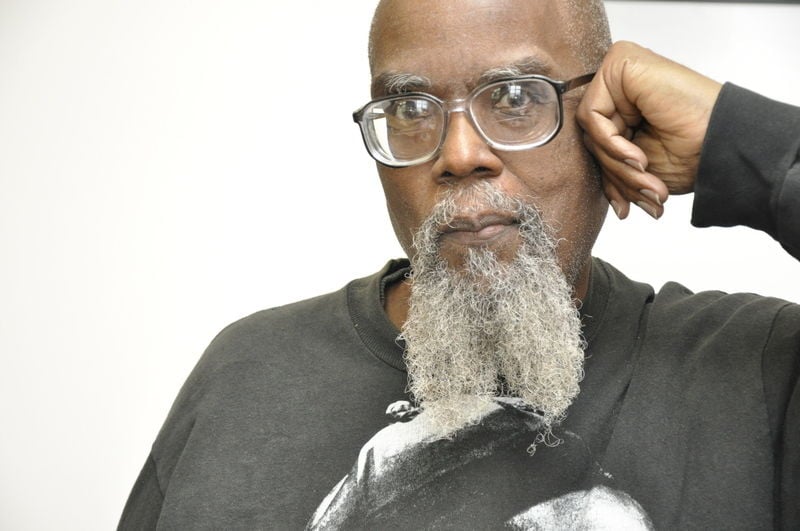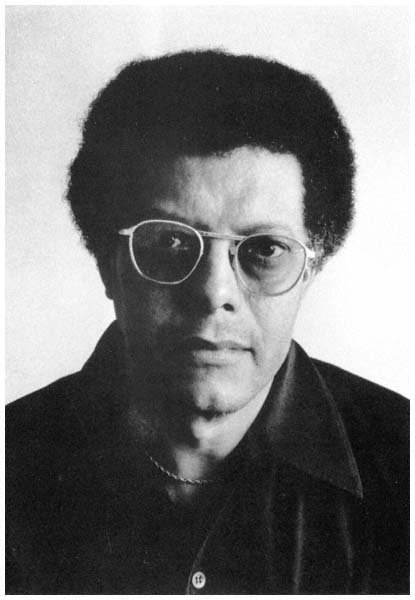Meet Tom Dent …. again:
In “New Orleans Griot:
The Tom Dent Reader,”
Kalamu ya Salaam
re-introduces
one of our city’s
most versatile writers

Kalamu ya Salaam • CONTRIBUTED PHOTO BY ALEX LEAR
What is a griot? Merriam-Webster defines it this way: “Any of a class of musician-entertainers of western Africa whose performances include tribal histories and genealogies; or, more broadly, storyteller.”
Tom Dent was certainly that. Born in New Orleans in 1932, the son of Dillard University president Albert C. Dent and Jessie Covington Dent, Tom Dent was known for his work with the Umbra Writers Workshop, which he helped found in New York and which was so influential in the Black Arts Movement.
He moved back to New Orleans in 1964 and worked at the Free Southern Theatre, wrote poetry collected in “Blue Lights and River Songs” and “Magnolia Street,” the play “Ritual Murder” and others; and his last work, “Southern Journey: A Return to the Civil Rights Movement,” chronicled his travels to sites important in civil rights history. He died in 1998, leaving behind a vast amount of unpublished work.
Now his legacy is ready for a new generation of readers, with the publication of “New Orleans Griot: The Tom Dent Reader,” edited by Dent’s longtime friend, Kalamu ya Salaam, published by the University of New Orleans Press.
Salaam calls Dent “the most important New Orleans writer of all time.” And he makes his case in this incredible selection of writing, more than 400 pages of letters, stories, articles, poems, plays and excerpts from larger work. It is by turns fascinating, moving and heartbreaking.
This work was taken from the Tom Dent archive, some 140 linear feet of paper, at the Amistad Research Center. Kara T. Olidge, director of the Center, said, “The collection of Tom Dent’s personal papers comprise one of the most significant literary and civil rights collections at the Amistad Research Center. Encompassing 240 boxes of letters, photographs, writings, and oral histories, Tom is seen as a modern renaissance man through his various activities and projects, all of which are documented in his papers at Amistad.”
Despite their closeness, Salaam was surprised by the amount and breadth of the collection. “I had no idea that he had done that much work,” he said. “He didn’t publish that much.”
Salaam first rejected the notion of writing a biography, then seized the opportunity to get the work out and decided on a chronological sequence for this book. There are items that Dent wrote for college newspapers at Morehouse and Syracuse University, work from the Umbra Workshop to start with. There is even a letter of frank self-appraisal, “Dear Dr. Brayboy,” that Dent once wrote to his psychiatrist.
Taken together, these works constitute a curiously intimate and moving portrait of an African-American man coming of age, his lifelong search for identity and self-acceptance, his struggle with his New Orleans background, his privileged upbringing. Shining through it all is Dent’s ruthless honesty, his power of acute observation and his ability to provide a larger context.
Some of the most lyrical, lovely writing in this book is about New Orleans, where Dent returned in the 1960s after being robbed at gunpoint in New York. He began to see his home town in a new way. Quite simply, as Salaam puts it, “He was seduced and enraptured by the city of his birth.”
Dent writes beautifully and insightfully about Mardi Gras, second lines, the Mardi Gras Indians, St. Joseph’s Night, and Jazz Fest. Here’s a sample: “My favorite all-time Carnival scene was one I saw on North Rampart: A small contingent of marching black youth returning from Canal Street tooting on those toy trombones with all the conviction of the Olympia Brass Band, marching in perfect time and rhythm, oblivious to the insanity around them. And who can find fault with that? In a city where unemployment is rampant, where housing is decrepit and where there is no improvement within range of a telescope, the more capacity for fantasy, possibly the better.”
In addition, the book includes interviews, a bibliography and an afterword by poet/professor Jerry Ward.
Salaam credits Dent with setting him on the path to so much: writing, editing, documenting his experience. And beyond the clear evidence of the work involved in making this book, he cherishes his friend’s memory. “After his death, whenever I would travel, when I would go North, and it was cold, the gloves I had were Tom’s gloves. So he’s literally holding my hand.”
In his turn, Kalamu ya Salaam hopes to lead a new generation by the hand to Tom Dent’s work, this legacy of incredible writing.
Susan Larson is the host of The Reading Life on WWNO-FM.
*******************
Book Discussion
What: Kalamu ya Salaam discusses “New Orleans Griot: The Tom Dent Reader” with Ishmael Reed
When: 6:30 p.m. Tuesday (Jan. 16)
Where: John Georges Auditorium, Dillard University
Tickets: Eventbrite.com; free

